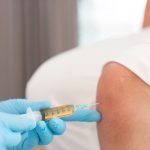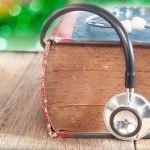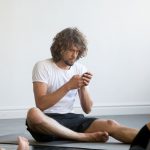Vast Majority of Americans Stress About Country’s Future
Node Smith, ND
More than 8 in 10 Americans (83%) say the future of our nation is a significant source of stress, according to the American Psychological Association’s most recent survey report, Stress in America™ 2020: Stress in The Time of COVID-19, Volume Two. The previous high was 69%, reported in 2018 as part of APA’s annual Stress in America survey.
More than 7 in 10 (72%) Americans say that this is the lowest point in the country’s history that they can remember
Following protests over racial injustice sparked by the death of George Floyd at the hands of Minneapolis police — all set against the backdrop of the COVID-19 pandemic — more than 7 in 10 (72%) Americans say that this is the lowest point in the country’s history that they can remember.
The report includes findings from two recent surveys conducted by The Harris Poll on behalf of APA: Wave 2 of the COVID Tracker conducted from May 21 to June 3, 2020, among 3,013 adults age 18+ who reside in the U.S. and an additional poll about the current civil unrest conducted from June 9 to 11, 2020, among 2,058 adults age 18+ who reside in the U.S.
Three national crises collide — the COVID-19 pandemic, economic turmoil and recent, traumatic events related to systemic racism
“We are experiencing the collision of three national crises — the COVID-19 pandemic, economic turmoil and recent, traumatic events related to systemic racism. As a result, the collective mental health of the American public has endured one devasting blow after another, the long-term effects of which many people will struggle with for years to come,” said Arthur C. Evans Jr., PhD, APA’s chief executive officer. “We don’t have to be passive players in mitigating the rapidly increasing stress Americans are facing and its consequences on our health.”
The proportion of black Americans who say discrimination is a significant source of stress has increased significantly in the past month, with 55% of black adults saying discrimination is a significant source of stress in Wave 2 of the COVID Tracker. At the beginning of May, only 42% said the same in Wave 1. In the most recent civil unrest poll, more than 7 in 10 Americans (71%) say police violence toward minorities is a significant source of stress. But most Americans (67%) say the current movement against systemic racism and police brutality is going to lead to meaningful change in America.
“America has an ongoing racism pandemic that continues to devastate the lives and livelihoods of our black communities,” Evans said. “The majority of Americans are finally coming to terms with the reality people of color have known all too well for all too long and that research has documented: Racism poses a public health threat and the psychological burden is immense. We have a lot of healing to do as a nation. Increased access to psychological supports is one way to move us more in the right direction.”
A continued focus on pandemic-related stress through the COVID Tracker shows
In a continued focus on pandemic-related stress through the COVID Tracker, the report also shows nearly 2 in 3 adults (66%) say the government response to the COVID-19 pandemic is a significant source of stress. Of those, 84% say the federal government response is a significant source of stress, followed by state (72%) and local governments (64%).
Overall, more than 6 in 10 Americans (63%) agree that the thought of the U.S. reopening causes them stress, but just over 7 in 10 adults (72%) say they are confident they can protect themselves from coronavirus once the U.S. reopens. At the same time, 65% say they wish they had more information about what they should do as their community reopens.
Stress in America™ 2020: Stress in the Time of COVID-19, Volume Two is available at: https://www.apa.org/news/press/releases/stress/2020/report-june

Node Smith, ND, is a naturopathic physician in Humboldt, Saskatchewan and associate editor and continuing education director for NDNR. His mission is serving relationships that support the process of transformation, and that ultimately lead to healthier people, businesses and communities. His primary therapeutic tools include counselling, homeopathy, diet and the use of cold water combined with exercise. Node considers health to be a reflection of the relationships a person or a business has with themselves, with God and with those around them. In order to cure disease and to heal, these relationships must be specifically considered. Node has worked intimately with many groups and organizations within the naturopathic profession, and helped found the non-profit, Association for Naturopathic Revitalization (ANR), which works to promote and facilitate experiential education in vitalism.










